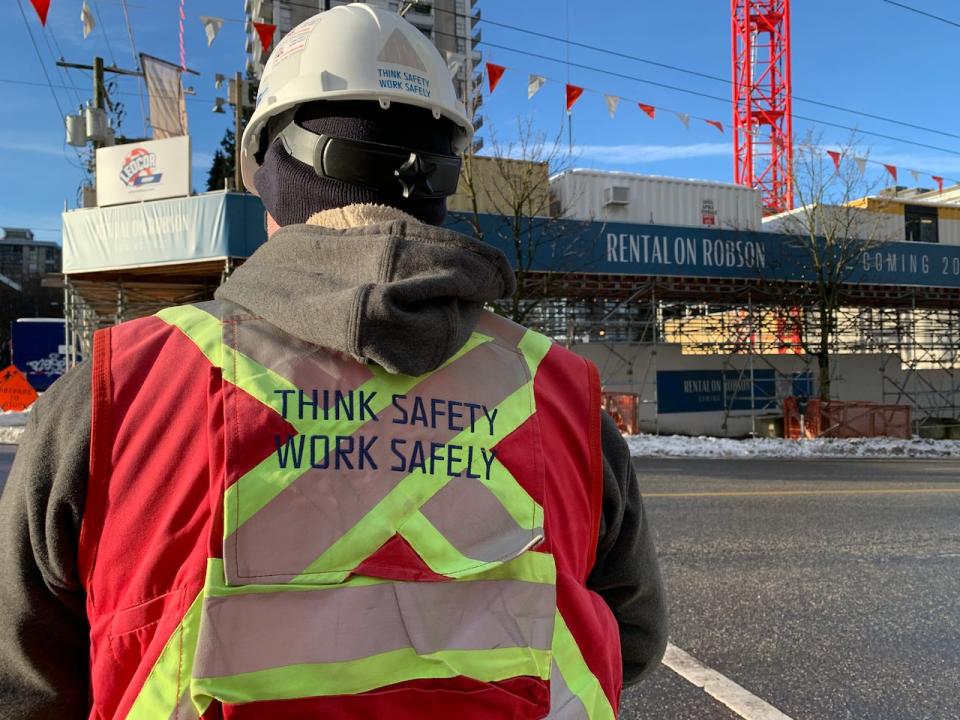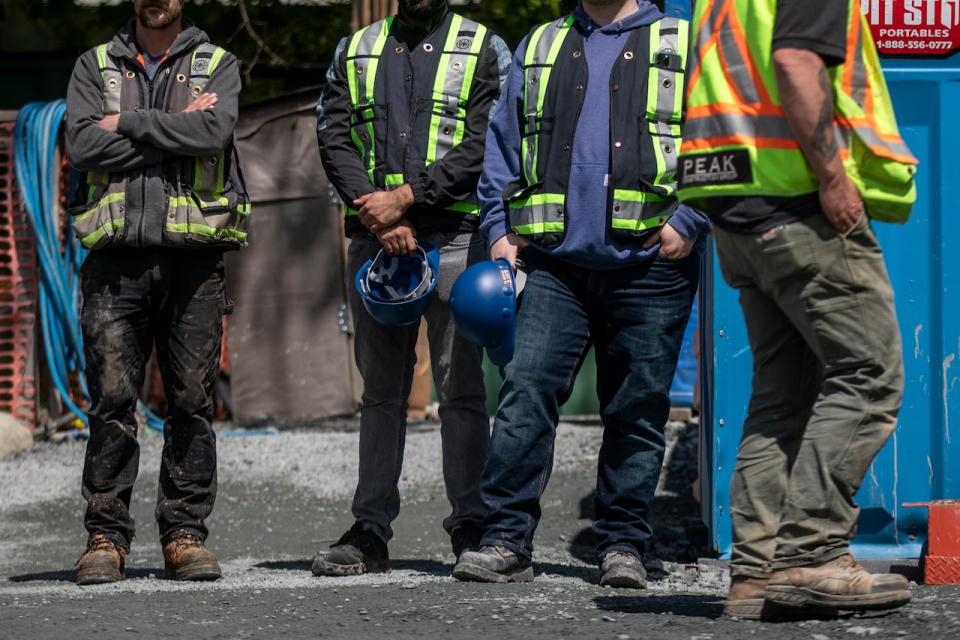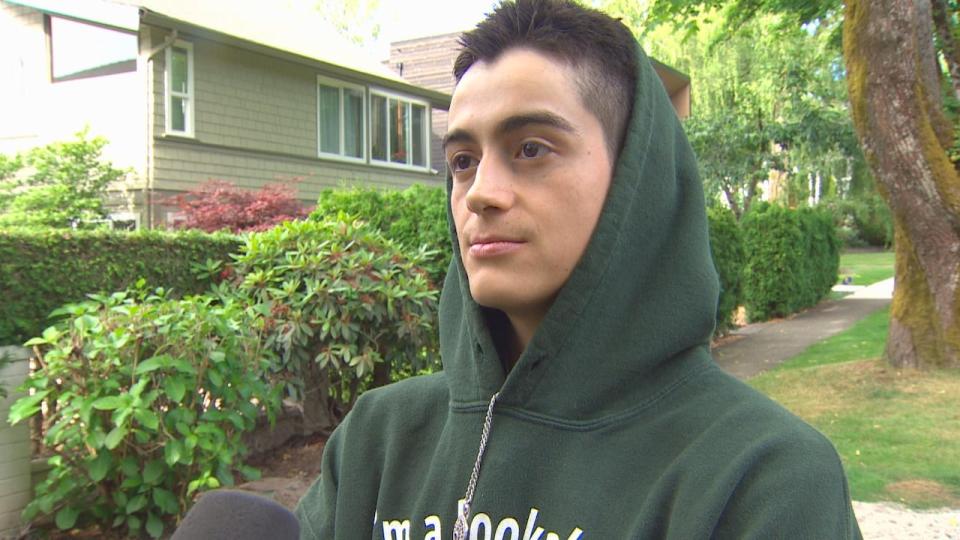Report says foreign workers in construction need more rights
A construction trade union group says Canada's immigration system is failing both to prevent imminent labour shortages on B.C. job sites and to protect many of the people who come to do construction work.
The B.C. Building Trades Council released a report Wednesday arguing both federal and provincial governments are not attracting enough international tradespeople to join the workforce, and those who do come are often coming through temporary programs that afford less pay and fewer rights.
"The share of temporary workers in the construction industry in B.C. is more than double the national proportion," the report stated.
In 2021, 2.1 per cent of construction workers in Canada were temporary workers — but the report found that in B.C., the figure was 4.7 per cent.
"This undercuts wages and employment opportunities for local workers, denies migrant workers important employment rights and protections, and gives employers that overutilize these temporary programs a competitive advantage over companies hiring Canadians," the report says.
The council's report calls for the federal government to, among other actions, launch an independent audit for two foreign worker programs, the International Mobility Program and the Temporary Foreign Worker Program in order to investigate "problems, abuse and mismanagement".
It also asks the federal government to pause the use of those programs in construction during that audit.

52,600 more workers by 2032
The report states B.C.'s construction work force will need to recruit 52,600 more workers by 2032, and 30 per cent of construction workers will need to come from immigration to avoid a deficit of 18,700 workers.
The Federal Skilled Trades Program, designed to welcome tradespeople to Canada, is "particularly underutilized," only bringing in 270 such workers to B.C. from 2019 to 2023.
The report says from 2019 to 2023, 7,160 temporary foreign construction workers were approved to work in B.C., but in the past five years, only 7,020 tradespeople have obtained permanent residency in the province through economic immigration programs.

"There's clearly companies where they use this as their business model," B.C. Building Trades Council executive director Brynn Bourke said. "They don't want to pay market wages in British Columbia to have skilled local British Columbians do the work.
"Those migrant workers … they're being denied the employment rights and protections that workers here should have."
CBC reached out to two B.C. construction industry groups to comment, but neither was available by deadline.
Pathway to residency
Canada's temporary foreign worker program in particular was designed to provide short-term, last-resort labour. However, its wider economic impacts, and the vulnerability it can expose workers to, has made it controversial.
Raul Gatica with migrant worker advocacy group Dignidad Migrante Society, says temporary workers are in a precarious situation. Many of their permits are tied to single employers, and they may have to leave Canada if they are fired.
"For example, should they get [in] a work accident … they just have to be quiet," Gatica said.
Gatica added that many precarious workers have to pay to get on the job in the first place — spending on things like labour assessments and paperwork, which he argues should be the responsibility of employers.
He agrees these workers should have a pathway to citizenship and also is calling for undocumented workers to have such a path.
Paul Veliz says he experienced these vulnerabilities firsthand.
The 23-year-old carpenter from Mexico described abuse by his employer while he was on a temporary foreign worker permit tied to a single employer.

"Economical abuse, sexual abuse, physical abuse — and pretty much all the abuses you can imagine," Veliz said.
He's now on an open work permit not tied to a single employer, but says he wants a pathway to permanent residency so he doesn't live with uncertainty.
"A clear path to permanent residency or citizenship, for sure, will be a stress relief for all temporary foreign workers, I would say."
Province prioritizing 35 trades
University of Victoria assistant professor of economics Justin Wiltshire argues restricting companies' ability to bring in temporary foreign workers would drive up the cost of housing construction.
Any restrictions on temporary foreign workers need to be approached cautiously, he said, although better enforcement of rules and mandating better pay for foreign workers might be appropriate.
"These sorts of small efforts and potentially having more clear pathways to residency, I think, are absolutely reasonable to consider," Wiltshire said.
"But those are the things that we should be talking about rather than restricting the ability of companies that need workers in the trades … given that we are not training enough people in this country."
B.C.'s Ministry of Municipal Affairs acknowledges more tradespeople are needed, especially for housing construction.
It says it has been targeting 35 priority construction and trades occupations since 2023 with the provincial nominee program, which offers skilled workers a pathway to permanent residency.
CBC asked for comment from the federal government but did not receive a response by deadline.

 Yahoo News
Yahoo News 
